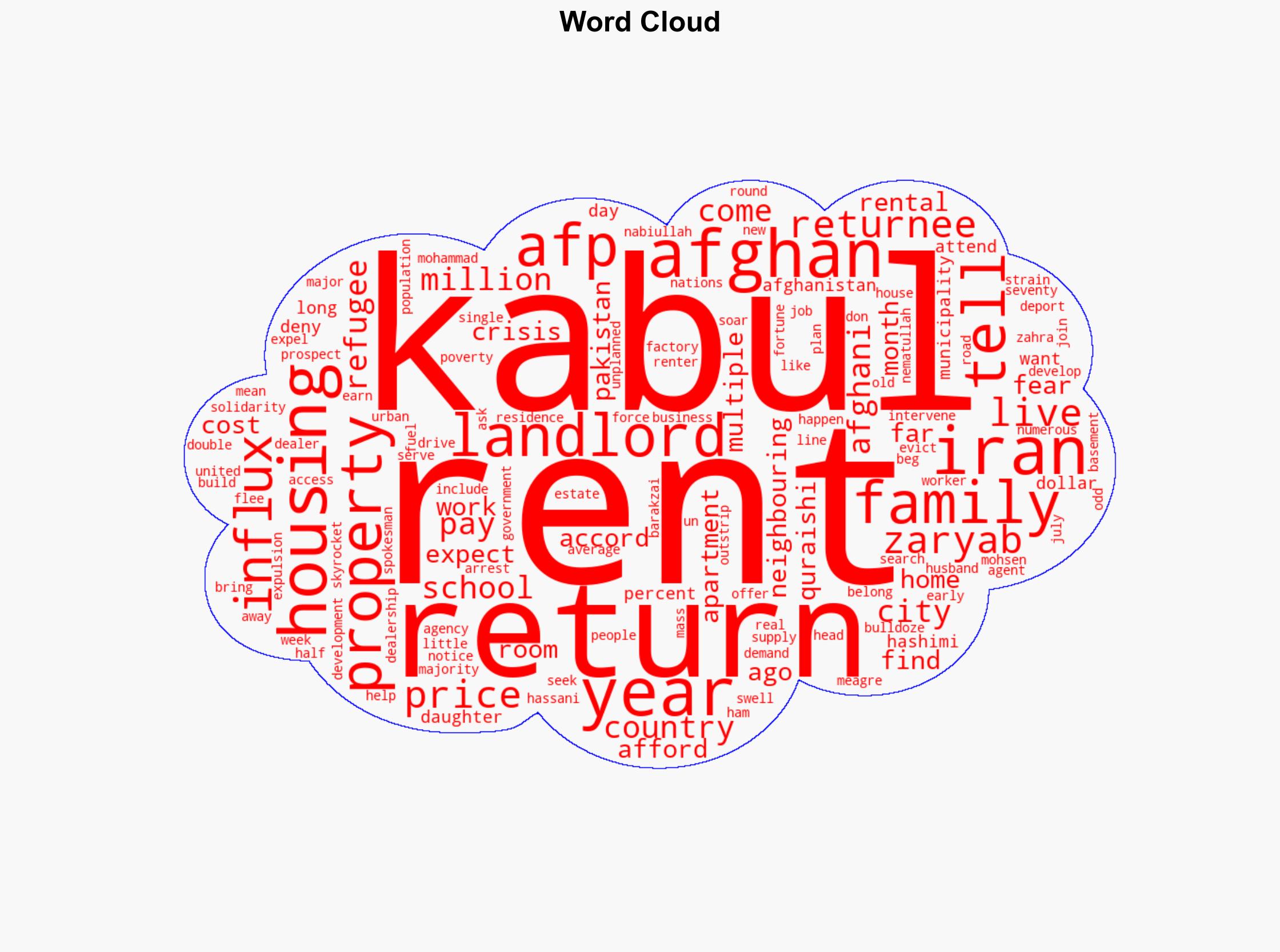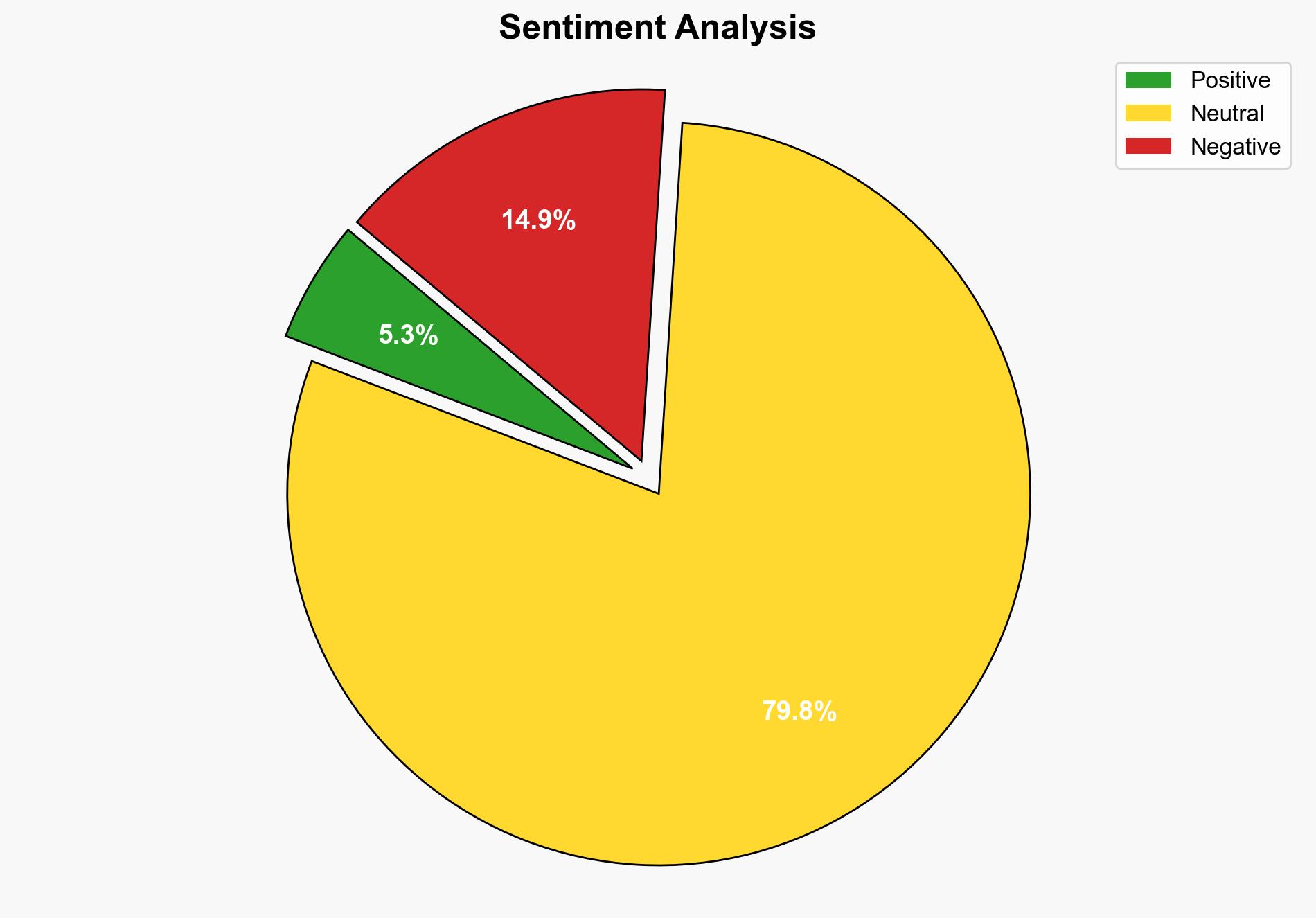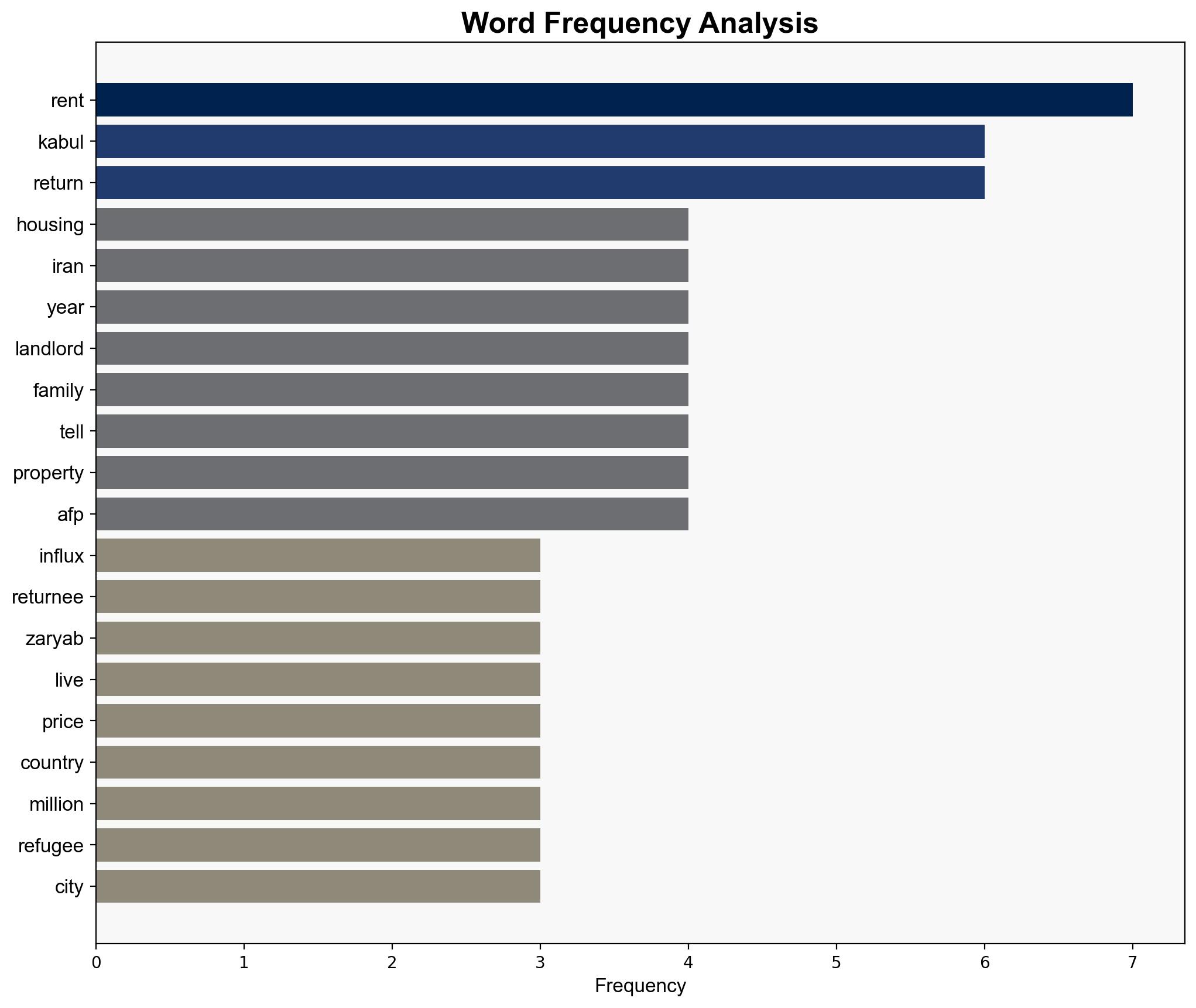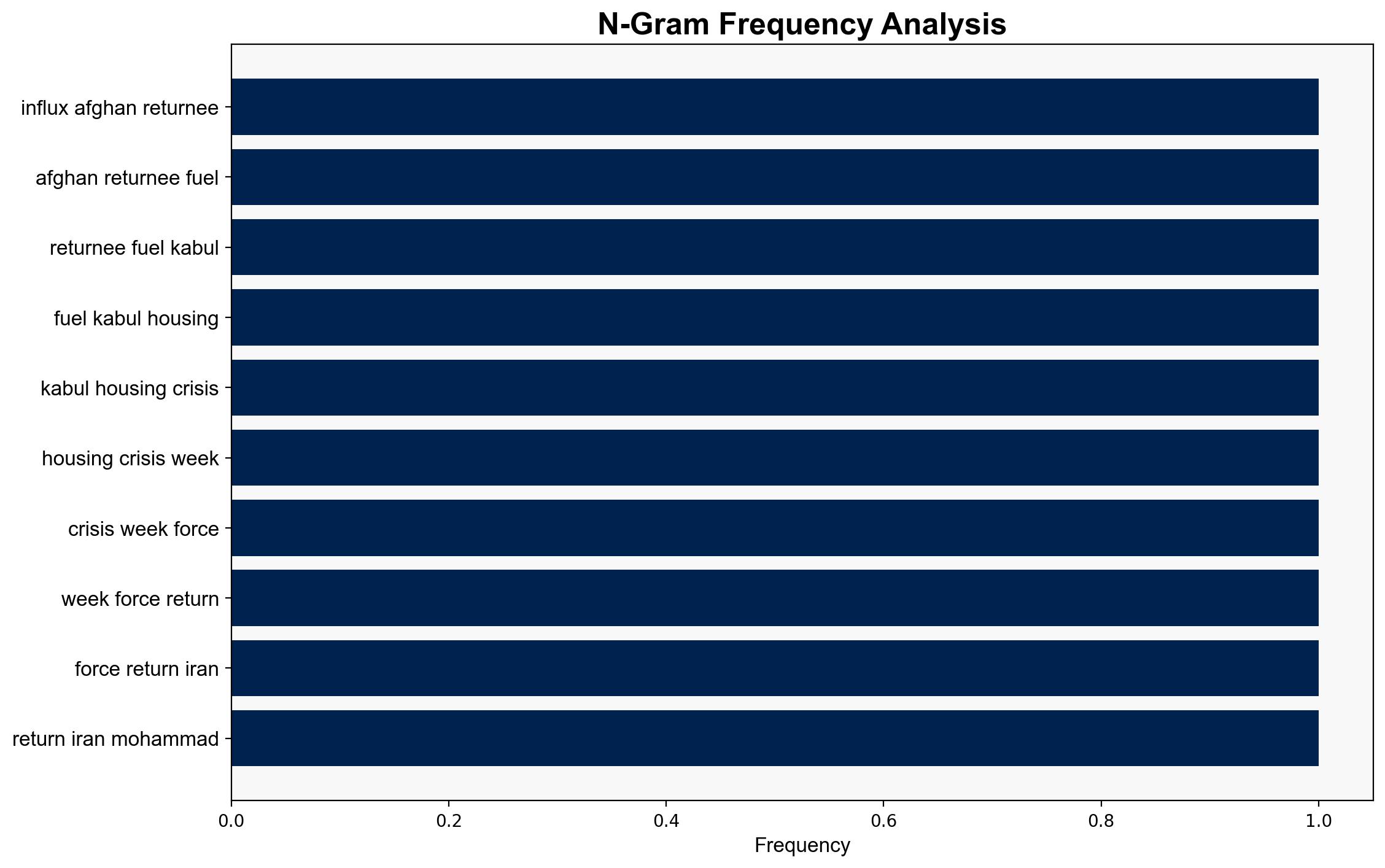Influx Of Afghan Returnees Fuels Kabul Housing Crisis – International Business Times
Published on: 2025-08-07
Intelligence Report: Influx Of Afghan Returnees Fuels Kabul Housing Crisis – International Business Times
1. BLUF (Bottom Line Up Front)
The influx of Afghan returnees from Iran and Pakistan is exacerbating Kabul’s housing crisis, leading to increased rental prices and potential social unrest. The most supported hypothesis suggests that the lack of urban planning and infrastructure development is a primary driver of this crisis. Confidence level: Moderate. Recommended action: Urgent intervention in urban planning and humanitarian aid to stabilize housing and prevent further socio-economic deterioration.
2. Competing Hypotheses
1. **Hypothesis A**: The housing crisis in Kabul is primarily driven by the sudden influx of Afghan returnees, overwhelming the existing housing supply and causing rental prices to soar.
2. **Hypothesis B**: The crisis is exacerbated by inadequate urban planning and infrastructure development, which fails to accommodate both the existing population and returnees, leading to a bottleneck in housing availability.
Using ACH 2.0, Hypothesis B is better supported as it accounts for the structural issues in Kabul’s urban development, which are compounded by the returnee influx. Hypothesis A focuses solely on the immediate impact of returnees without addressing underlying systemic issues.
3. Key Assumptions and Red Flags
– **Assumptions**: Both hypotheses assume that returnees are primarily settling in Kabul due to perceived economic opportunities. Hypothesis B assumes that urban planning has been historically neglected.
– **Red Flags**: Lack of data on government response and long-term urban planning strategies. Potential bias in attributing the crisis solely to returnees without considering other economic factors.
– **Inconsistent Data**: Discrepancies in reported rental price increases and the actual number of returnees.
4. Implications and Strategic Risks
– **Economic Impact**: Rising rental prices could lead to increased poverty and homelessness, straining social services.
– **Social Unrest**: Tensions between long-term residents and returnees may escalate, leading to potential conflict.
– **Geopolitical Risks**: The situation could destabilize Kabul further, impacting regional security and international relations.
– **Psychological Impact**: Increased stress on families unable to secure housing could lead to broader societal issues.
5. Recommendations and Outlook
- **Immediate Action**: Implement temporary housing solutions and subsidies for returnees to alleviate immediate pressure.
- **Long-term Strategy**: Develop comprehensive urban planning initiatives to expand housing infrastructure.
- **Scenario Projections**:
– **Best Case**: Effective government intervention stabilizes housing, leading to economic recovery.
– **Worst Case**: Continued inaction results in widespread homelessness and social unrest.
– **Most Likely**: Partial interventions provide temporary relief but fail to address systemic issues.
6. Key Individuals and Entities
– Mohammad Mohsen Zaryab: A returnee from Iran facing housing challenges.
– Nabiullah Quraishi: Head of a property dealership, highlighting the rental crisis.
– Zahra Hashimi: A returnee fearing eviction due to rising rents.
7. Thematic Tags
national security threats, urban development, socio-economic stability, regional focus





